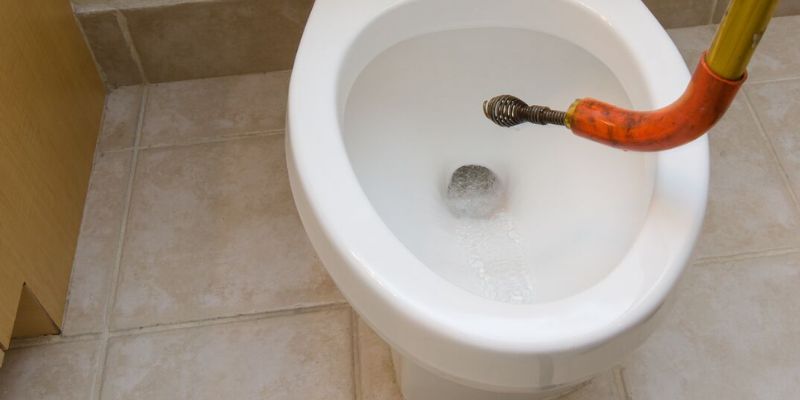When faced with a clogged toilet or drain, it’s essential to address the issue promptly to prevent further damage and inconvenience. In this guide, we’ll explore various methods to “How Do I Unclog a Toilet or Drain in 2023?”, ranging from simple do-it-yourself approaches to professional interventions. By following these techniques, you’ll be equipped with the knowledge to tackle clogs efficiently and keep your plumbing system in excellent condition.
Why Do Toilets and Drains Get Clogged?
Understanding the causes of clogs can help you prevent them in the first place. Several factors contribute to toilet and drain blockages, including:
- Accumulation of hair, soap scum, and other debris in drains.
- Flushing excessive amounts of toilet paper or non-flushable items.
- Deposits of mineral and organic matter in pipes over time.
- Intrusion of tree roots into sewer lines.
- Structural issues or damage in the plumbing system.
How Do I Unclog a Toilet or Drain in 2023?
Preventing Clogs
Taking proactive measures to prevent clogs can save you from the hassle of dealing with blockages. Here are some preventive tips:
- Use drain strainers to catch hair, food particles, and other debris.
- Avoid flushing non-flushable items such as wipes, cotton balls, or feminine hygiene products.
- Dispose of cooking grease in the trash, not down the drain.
- Regularly clean your drains using natural solutions like baking soda and vinegar.
- Have your sewer lines inspected and maintained periodically.
DIY Methods for Unclogging a Toilet
Sometimes, a clogged toilet can be resolved using simple do-it-yourself methods. Here are three effective techniques to try:
Method 1: Plunger
- Position the plunger over the drain hole, ensuring a tight seal.
- Push down gently, then pull up with a quick motion to create suction.
- Repeat the plunging motion several times until the water starts to drain.
Method 2: Hot Water and Dish Soap
- Boil a pot of water on the stove.
- Add a generous amount of dish soap to the toilet bowl.
- Carefully pour the hot water into the bowl from waist height.
- Allow the mixture to sit for a few minutes, then flush the toilet.
Method 3: Baking Soda and Vinegar
- Pour one cup of baking soda into the toilet bowl.
- Add one cup of vinegar and let the mixture fizz for a few minutes.
- Flush the toilet to see if the clog has been cleared.
- Professional Solutions for Stubborn Clogs
In some cases, professional assistance may be necessary to tackle stubborn clogs. Here are two methods commonly employed by plumbers:
Method 4: Plumbing Snake
- Insert the end of the plumbing snake into the drain opening.
- Rotate the snake clockwise as you push it further into the pipe.
- When you encounter resistance, rotate the snake counterclockwise to break up the clog.
- Continue pushing and rotating until the snake moves freely through the pipe.
- Flush the toilet or run water down the drain to ensure the clog is completely cleared.
Method 5: Hydro Jetting
- Hydro jetting involves using a high-pressure stream of water to clear clogs.
- A professional plumber will insert a specialized hose into the drain.
- The water is then blasted through the pipe, effectively removing any obstructions.
- Hydro jetting is especially useful for clearing severe or recurring clogs.
- Unclogging Drains: Clogged drains can disrupt your daily routine, but fear not, as there are several effective methods you can try at home:
Method 6: Boiling Water
- Boil a pot of water on the stove.
- Carefully pour the boiling water down the drain in two to three stages.
- Allow each pour to work for a few seconds before adding more.
- The hot water can help dissolve and flush away minor clogs.
Method 7: Baking Soda and Salt
- Mix half a cup of baking soda with half a cup of table salt.
- Pour the mixture down the drain.
- Let it sit for at least 15 minutes.
- Flush the drain with hot water to clear the clog.
Method 8: Vinegar and Lemon Juice
- Combine one cup of vinegar with one cup of lemon juice.
- Pour the mixture into the drain.
- Allow it to sit for 30 minutes.
- Rinse the drain with hot water.
When to Call a Professional
While many clogs can be resolved with DIY methods, certain situations require the expertise of a professional plumber. Consider calling a professional if:
- The clog persists despite attempts to clear it.
- Multiple fixtures are affected by the clog.
- You suspect a larger issue with your plumbing system.
- You are uncomfortable performing the necessary steps yourself.
FAQs
FAQ 1: Can I use chemical drain cleaners to unclog a toilet or drain?
Using chemical drain cleaners is not recommended as they can damage pipes and harm the environment. It’s best to opt for natural solutions or seek professional help.
FAQ 2: What should I do if plunging doesn’t work?
If plunging doesn’t work, try using a plumbing snake to break up the clog. If that doesn’t solve the issue, it’s time to call a professional plumber.
FAQ 3: Is it safe to use a plumbing snake on my own?
Using a plumbing snake can be safe if you follow the manufacturer’s instructions and exercise caution. However, if you’re unsure or uncomfortable, it’s best to leave it to the professionals.
FAQ 4: How often should I clean my drains to prevent clogs?
Regularly cleaning your drains using natural solutions like baking soda and vinegar once every few months can help prevent clogs.
FAQ 5: Can tree roots cause clogged drains?
Yes, tree roots can infiltrate sewer lines and cause clogs. If you suspect tree roots are the issue, it’s crucial to consult a professional plumber for proper diagnosis and repair.
FAQ 6: What are the signs of a main sewer line clog?
Signs of a main sewer line clog may include multiple fixtures backing up, gurgling sounds, foul odors, and slow drains throughout your home. In such cases, it’s essential to call a professional plumber immediately.
Wrap Up
Dealing with a clogged toilet or drain can be frustrating, but armed with the right knowledge, you can successfully unclog them in 2023. By following the methods and tips outlined in this guide, you’ll be well-equipped to tackle clogs effectively.
Remember, prevention is key, so practice good habits to avoid future blockages. However, if the clogs persist or the situation seems more complex, don’t hesitate to seek the assistance of a professional plumber. With the information provided here, you’ll be able to keep your plumbing system running smoothly and avoid unnecessary headaches.

